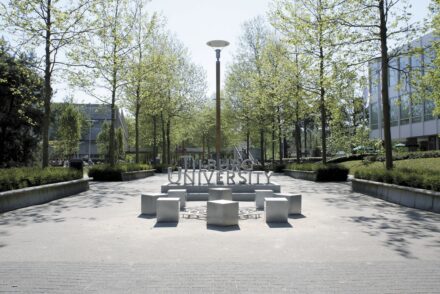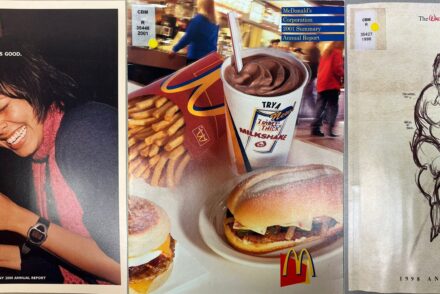Inflation rate flattens out, but not for students
The fear of price increases is partly between the ears, say researchers at the economics faculty. But that does not apply to things that students spend a lot of money on, such as room rent or drinks and cigarettes, those prices are really skyrocketing. And what about compensation?

Bread, bananas and foreign travel, everything is getting more expensive, right? Not quite. Figures from Statistics Netherlands (CBS) show that inflation levelled off last year after several years of sharp increases. Food prices have risen by just over one percent in the past year compared to the previous year. And inflation on clothing also remained below average.
Experience
How is it possible that we still think that everything has become much more expensive? Professor of Household Finance Kim Peijnenburg conducted research into the perception of prices: ‘Inflation was actually not too bad in 2024, but the fear of rising prices is still there after the sky-high inflation figures of recent years.
Statistics Netherlands saw this ‘shock’ reflected in the figures: ‘The recovery of consumer confidence stalled last year. Consumers were hardly less negative at the end of 2024 than at the beginning,’ CBS wrote on its website. In her research, Peijnenburg found that recent price increases have an impact on our perception and that we expect those prices to continue to rise for some time.
And that in turn affects the inflation figures themselves: ‘Consumers include inflation in their spending habits. Suppose you want to buy a car, but you think that cars will become ten percent more expensive next year. So then you decide to buy that car this year. But that’s how you help to fuel inflation.’
Expectations
Expectation patterns therefore have a major influence on the figures. This shows once again that economics is not an exact science. ‘We abandoned the idea that people are calculated consumers a while ago,’ Peijnenburg agrees: ‘Consumers can sometimes make decisions that are not entirely rational or logical.
‘That irrational behaviour does have an impact on economic developments. That is why it is good that we give scientists an accurate picture of these developments, such as inflation, in order to dampen or prevent harmful effects. And it’s not just up to us, the government or the media can also help explain the real story,’ says Peijnenburg.
Students suffer
Real figures or not, a night out, eating out or a festival ticket are rising above average. And the rents? These are also skyrocketing, especially in the free sector, which includes a lot of room rental. ‘That’s right,’ says Peijnenburg. ‘The inflation rate is an average. But everyone has their own spending pattern, and you could say that inflation for students last year was higher than the average of four percent.’
For the current academic year, the National Institute for Budget Information (Nibud) calculated that students living away from home will lose almost seven percent on average. Tuition fees were also almost ten percent higher than in the previous academic year. However, this was offset by a one-off increase in the basic grant.
No compensation
In recent years, wages have also risen sharply in line with inflation. The unions demanded wage increases of up to 10 percent and collective bargaining wages rose more than six percent in 2024. This allowed the working part of the population to partly ease the pain of rising costs.
Students with a basic grant were also compensated for inflation last year, but that was a one-off. A proposal by the opposition to keep the inflation increase for this year did not achieve a majority in the House. And that while rents have risen sharply this year, as have excise duties on alcohol and tobacco. Typical expenses for students. Fortunately for them, wages in the hospitality industry also rose more than average.






